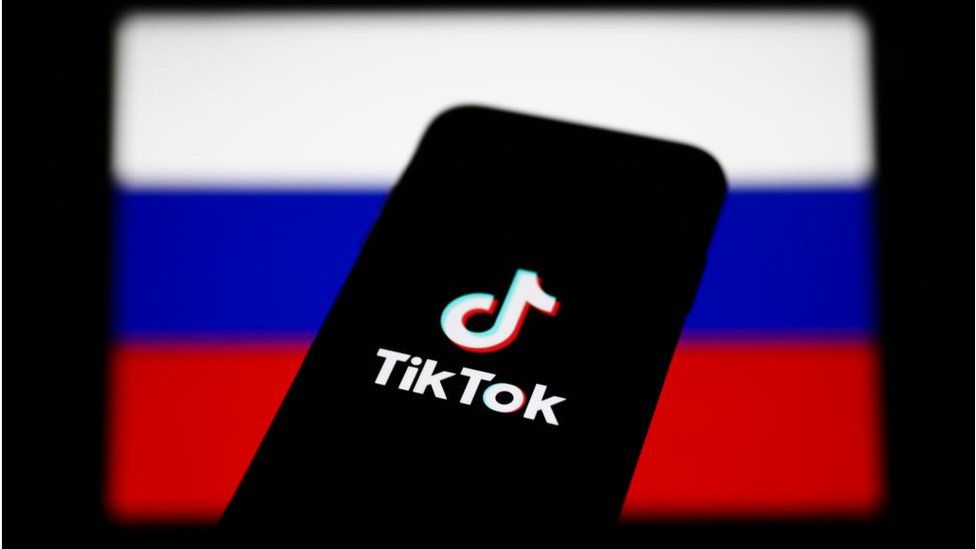Video-sharing site TikTok and streaming giant Netflix have limited and cut their services respectively in Russia following its invasion of Ukraine.
TikTok said it had suspended live streaming and new content from its platform as it assesses tough new laws to crack down on “fake news” about Russia’s armed forces.
Netflix said it was pulling out in protest at the invasion.
Visa, Mastercard and PwC also joined the list of western firms cutting ties.
TikTok, which has around 36 million users in Russia, said its move was about ensuring the safety of its staff and users.
Since Friday, anyone who writes news deemed false about the military could face up to 15 years in jail.
Among other things, the Kremlin objects to the conflict being called a war, instead calling it a “special military operation”.
The BBC and other news outlets have already stopped reporting in Russia, saying they can no longer be independent.
In a series of Tweets, TikTok said: “In light of Russia’s new ‘fake news’ law, we have no choice but to suspend live-streaming and new content to our video service while we review the safety implications of this law.
“Our in-app messaging service will not be affected.”
- BBC suspends its journalists’ work in Russia
- Facebook hits out at Russia blocking its platforms
- Apple halts sales and limits services in Russia
It added: “We will continue to evaluate the evolving circumstances in Russia to determine when we might fully resume our services with safety as our top priority.”
Chinese-owned TikTok, which has one billion users worldwide, has been criticised for not speaking out against Russia invading Ukraine, unlike its peers Meta, which owns Facebook and Instagram, and Twitter.
But in a longer statement on its website on Sunday, it described the war in Ukraine as “devastating”, adding that it had “brought pain to our community and our people”.
TikTok says it “doesn’t break down user numbers by country” but we know that Russia is one of the company’s top territories.
It’s thought that around 36m people use the app and TikTok’s new rules reduce them to spectators of other people’s content.
TikTok says it’s making the move to protect its users from breaking Russia’s new “fake news” laws.
But it will no doubt help the company too.
Moderating social networks during times of crisis is hard enough, but having to vet content under the new draconian laws in Russia puts all platforms in a tough position.
I wouldn’t be surprised if other apps took similar measures to protect themselves.
Russia has many high-profile creators who make their living from TikTok so we can expect even more people to be motivated to protest themselves against the “fake news” laws.
The Kremlin may also lose out in the information war too with less pro-Russia content on people’s timelines.
Presentational grey line
Last week, Netflix temporarily stopped all future projects and acquisitions in Russia as it assessed the impact of Moscow’s invasion of Ukraine.
But on Sunday, a spokesperson said: “Given the circumstances on the ground, we have decided to suspend our service in Russia.”
The firm launched in Russia in 2016 and only has 1 million subscribers there – a fraction of the 220 million it has worldwide.
But according to Variety magazine, the streaming platform – which operates in a joint venture in the country with Russia’s National Media Group – had four Russian originals in the works.
That includes the crime thriller series Zato, which was shooting and has since been put on hold.
A host of companies have suspended their operations in Russia since it attacked its neighbour, including Apple, Jaguar Land Rover, H&M and Burberry. Many other firms are reviewing their positions, while some are looking to offload stakes in Russian ventures.
On Sunday, two of the Big Four accounting firms KPMG and PricewaterhouseCoopers LLP (PwC) said they would no longer have a member firm in Russia because of the invasion.
Visa, Mastercard and American Express also suspended operations in Russia, although the country’s banks played down the impact on consumers.
To view the original article, click here.




